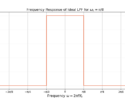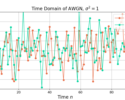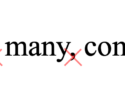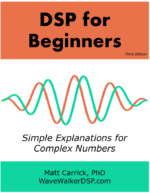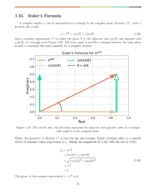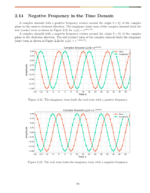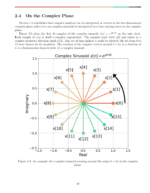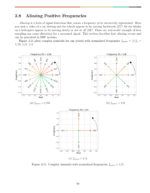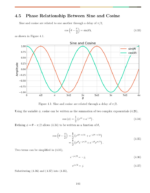Table of Contents
Introduction
What DSP classes should you take? How does a student choose what classes to take to prepare themselves for a career? It’s a tough question! I’ll provide insights into what classes were useful for me and describe some of the trade-offs. I am going to describe classes that will best prepare you to tackle any part of the DSP family tree.
Your career is your own. I will do my best to explain options and alternatives, but please make the best decision for you, and that may very well be different than what I am describing.
Related blogs:
What type of DSP?
The context and background I am coming from is the research, development and implementation of digital signal processing systems and algorithms for radio frequency (RF) and wireless signals. Your experience will be different if you wish to pursue a DSP career in the field of audio or optics and I cannot provide any insights into that career path.
Early Undergraduate
Signals and systems will be one of your first courses and you need to do well and understand this course. Signals and systems is may be your introduction to complex numbers and complex math, which is the mathematical language for all DSP. Additionally, signals and systems will introduce you to the concepts of signals and filters and their interactions with one another.
You will also need to take an introduction to software, as all DSP designed in software and much of it is also being implemented in software. Additionally, you’ll likely be enrolled into multiple levels of calculus which will build our your math toolkit which will be required to operate within the higher levels of DSP.
Late Undergraduate
Your junior and senior year as an undergraduate is where things get interesting and fun. Your freshman and sophomore years lay a foundation, and your last two years is where you can start to specialize.
You will need to take a course on filter design. Understanding how filters operate, the alternatives between different types of filters and design trade-offs for filters is crucial to a successful career in DSP. As a practicing engineer you will be required to know how to select an appropriate filter, design it and then implement it into software on a near-daily basis. Every wireless communication system in the world has multiple different filters of all different types which are needed to implement both transmit and receive functions.
You will also need to take a course on communication signals. Communication signals are specially designed and formatted to enable the transmission and reception from one location to another. You will learn the fundamentals of early wireless communication such as amplitude modulation (AM) and frequency modulation (FM) used in broadcast radio, as well as modern communications like Frequency Shift Keying (FSK) which is used in Bluetooth and Phase Shift Keying (PSK).
Undergraduate Research
Undergraduate research is where students in their senior year, and potentially junior year, work as part of a graduate-school research team. Undergraduate research has been come popular recently but I have mixed feelings regarding it.
If you are not planning to go graduate school, it’s not clear that doing undergraduate research is useful. If you are planning to go to graduate school, it’s not clear to me that moving up the research experience by 6-12 months is important.
Undergraduate research can have value, but is it the best use of your time? Yes, you will get some experience about what it is like to be in graduate school. However, the most growth and best experience I had was doing internships within industry. Additionally, during my internships I realized how much I still needed to learn which is what truly propelled me into graduate school.
Graduate School
Graduate-level classes were by far my favorite and the most interesting. You will likely be forced to take stochastic signals and systems which gives you foundational statistical tools needed for additional classes. Otherwise, you get much more flexibility in course selection. Topics I recommend are:
- Advanced filter design
- Advanced digital communications
- Multicarrier communication
- Spread spectrum communication
- Software radio
Advanced filter design will cover multi-rate signal processing and sample rate change, polyphase filter banks and effects of finite bit-length such as quantization noise. This is foundational since these are tools you must apply when designing and implementing DSP systems.
Advanced single-carrier communications will get into more details about digital communications, including performance analysis and design trade-offs between different modulations and signals, transmit and receive algorithms, and encoding and error correction. This topic is to be prioritized because it gives you a broader understanding of basic modulations, many of which are used in more complex and modern systems.
Multi-carrier communications is an introduction to orthogonal frequency division multiplexing (OFDM) which is the foundational modulation for WiFi, LTE and many other important modern wireless systems. OFDM and other multi-carrier signals continue to be adopted and used in modern systems, and it is crucial to develop an understanding of them.
Spread spectrum communications covers both direct sequence spread spectrum (DSSS) which is used in GPS and frequency hopping (FH) which is used in Bluetooth. This course is more niche, but still has important signals which are needed to give you breadth.
Software radio will give you insights into how modern DSP systems are implemented completely in software. It may introduce you to a software radio framework such as GNU Radio. It is also possible that you can develop these same skills through a summer internship or other time in industry in case you want to take another course in substitution of this topic.
Conclusion
Make wise choices when selecting your college classes such that they will be the foundation for the remainder of your career. Your early undergraduate classes will be selected for you. In late undergraduate and graduate school you will have much more flexibility in selecting classes and for developing a specialization. I have listed some courses and topics that I suggest for a career in the research, design and implementation of DSP systems for RF signals. Ultimately, your career is your career and you’ll need to make the selections that support what you want to do.
Related blogs:
- How to Travel Well At the Airport
- How to Write an Engineering Resume
- How To Build a Professional Network
